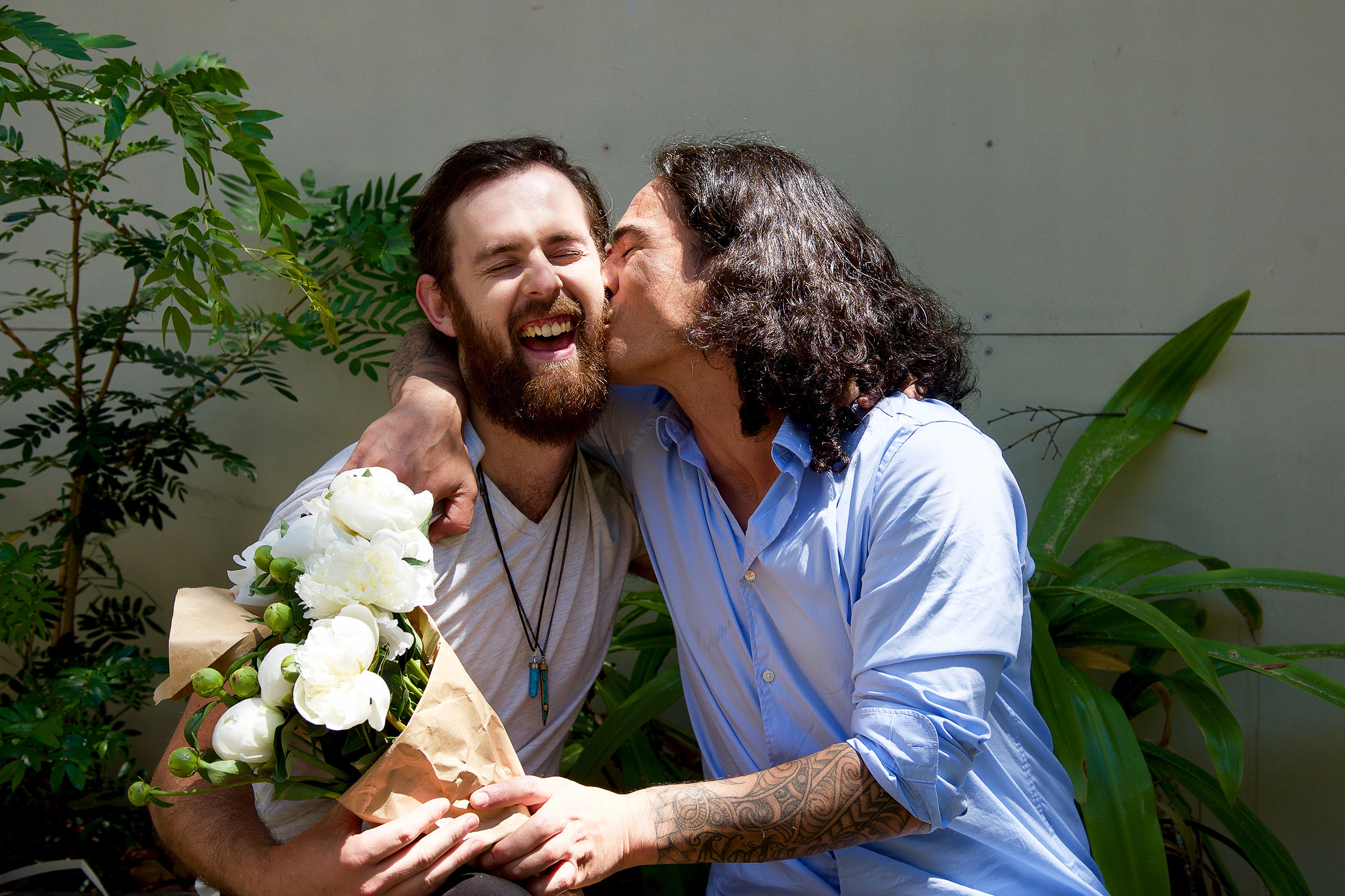
There’s a common misconception about relationships, and it starts with the words happily ever after that we hear in Disney movies as children. We’re told that it’s easy to simply settle down with a partner, or even find close friends, who will bring you happiness with no strings attached, no complications, and no fights.
Well, Nate Bagley refutes that falsity in his article, Seriously. What’s the Point of Marriage?, where he argues that the point of marriage isn’t happiness, but growth. And that’s likely true for all interpersonal relationships.
But let’s take it back a step further. When, in childhood or high school or even college, did you learn specifically, from scientific evidence, how relationships work? You may have taken a psychology course about attachment theory, family systems, human development, or communication styles, but there is no institutionalized educational curriculum for everyday people to learn how to be successful in the relationships in their lives.
Considering how many people we will meet, befriend, work with, and even fall in love with in our lives, that’s an incredibly important, if not vital, life skill to have.
Unless you’ve been to couples therapy (or if you are a couples therapist), you may not have learned how relationships really work. I mean, honestly, when did anyone ever tell you to use a soft start-up, and why it is so effective? Or how to express your needs assertively, yet without criticism or blame, and how that leads to greater understanding?
When did anyone ever specifically teach you that when you get into a heated argument with someone, you’re actually so physiologically agitated—stress hormones, fast heart rate, even flight or fight response—that it’s nearly impossible to think or communicate rationally and that you need to take a break to calm down before things escalate?
When did anyone purposely teach you what empathy is and how to express it? Or how to manage conflict in a productive, healthy, and non-hurtful way?
Don’t you think it would help to use those skills in your relationships?
These methods and approaches to relationships all come from extensive scientific research and have formed the most important components of the Gottman Method. They are the facts about how relationships can work in a positive, healthy, and lasting way. And it will benefit you to learn them.
But why should I care? Why should I learn?
Why don’t we just go with our gut instincts, or with our intuition? Why don’t we just do what our parents did, or what our friends are doing in their own relationships and friendships?
Maybe we already have positive relationships in our lives, so why can’t we just go along with what we already know? If things are good enough, why improve?
Well, a longitudinal research study from Harvard University, which tracked the health of students starting in 1938 and over nearly 80 years, found that, more than anything else, positive relationships helped them live longer, healthier, and happier lives.
“When we gathered together everything we knew about them about at age 50, it wasn’t their middle-age cholesterol levels that predicted how they were going to grow old,” said Robert Waldinger, director of the study and a psychiatrist at Massachusetts General Hospital, in a popular TED Talk. “It was how satisfied they were in their relationships. The people who were the most satisfied in their relationships at age 50 were the healthiest at age 80.”
To add more credibility to the study, researchers later included inner-city Boston residents from less privileged backgrounds. They found that the same positive outcomes from having healthy relationships appeared in both the Harvard graduates and in everyday Bostonians.
“Close relationships, more than money or fame, are what keep people happy throughout their lives. Those ties protect people from life’s discontents, help to delay mental and physical decline, and are better predictors of long and happy lives than social class, IQ, or even genes.”
According to the study, participants lived longer, maintained good health, and didn’t smoke or drink alcohol in excess. And as much as there are a lot of positive outcomes for building strong and healthy relationships, there are also negative outcomes if you don’t build those relationships, especially if you are lonely.
“Loneliness kills,” Waldinger said. “It’s as powerful as smoking or alcoholism.”
Okay, so loneliness is a killer, but wait. Great relationships can help me to be happier, healthier, and live longer?
I don’t know about you, but that’s a great reason to learn how relationships work so that you can build positive, long-lasting relationships in your life.
But shouldn’t we just know how to form good relationships?
We assume that relationships should be intuitive and that romance and connection with others should just come naturally, and that we should just have some sort of divine sense of how to be kind and respectful in our relationships.
That’s kind of where the happily ever after myth comes in.
Yes, that all sounds lovely but it’s not necessarily true, and as much as the methods we teach to couples seem like common sense (yes, it’s a great idea to discuss issues by using a soft start-up so nobody gets hurt!), those methods are simply not that intuitive for most of us.
We’re not wired to be kind or understanding all the time, especially when we feel like we’re defending ourselves from criticism, or when we’re so angry that it becomes difficult to communicate respectfully or rationally. Sometimes, we’re even intentionally unkind or spiteful because of negative thoughts and feelings we experience about others, especially if we’ve bottled up those feelings.
But positive relationships and their interactions require understanding and intentionality so that you can communicate in a respectful way with everyone you engage with. They require an awareness of how to avoid being unkind or hurtful and how to transform your negative emotions into positive growth within your relationships.
And that means that you need to know how relationships work.
So how do relationships work, and how can I build positive relationships?
Relationships are constantly in flux, and they will always have some kind of conflict or disagreement, whether that be with a co-worker, a friend, a relative, or your partner. Like we’ve said before, all couples fight. You’ll have arguments with your friends, siblings, parents, and co-workers, too.
Conflict, whether big or small, will happen in interpersonal relationships, and it’s important to know how to productively manage those kinds of conflicts so that you can build better relationships with everyone you’ll meet.
More importantly, the same basic methods of managing conflict and validating another’s perspective that we teach to couples can be generally applied (sans physical affection if that would be inappropriate!) to any relationship you have with any other person.
And, frankly, you won’t always be happy in your relationships. Happiness is ever-changing and conditional, and you’ll always hit some rough moments with co-workers or friends with whom you usually get along great. Some of your best relationships—say, with close siblings, best friends, parents, or (obviously) your partner—will challenge you.
You will see flaws in almost anyone you meet and connect with, and they’ll see yours, but knowing how to accept them and work around them is key to building lasting relationships.
For example, your boss might be difficult to work with, and maybe you just have personality differences. (All relationships do, which leads to problems that may not be solved but can be productively managed.) That happens all the time. But if you don’t know the facts on how to effectively manage those differences, you might end up with a sour working relationship that inhibits your professional growth.
Sounds good. Where do I start?
We want to help you learn some basics about relationships. To start, Drs. John and Julie Gottman developed nine components of healthy relationships known as The Sound Relationship House Theory, and many of those components are useful in all kinds of relationships. Below are some of our most popular blog articles that will introduce you to important concepts, and while our research is based on romantic relationships, you can apply these methods to any relationship in your life.
- Emotion Coaching Isn’t Just for Children: A married couple explores how the most important concepts from our Emotion Coaching parenting program, such as validating your child’s feelings and helping them to identify, understand, and work through those feelings, form a great method to support anyone in your life.
- How to Give Effective Feedback in the Workplace: A former restaurant server discusses a tense standoff with a difficult boss, and how he used a gentle start-up to manage a recurring conflict.
- How to Switch Off Relationship Autopilot: While this article focuses mostly on romantic relationships, it argues why it is best to switch off your autopilot and be intentional and mindful in cultivating positive relationships.
- The Four Horsemen: Criticism, Contempt, Defensiveness, and Stonewalling: If you’ve read some of our most popular articles, you’ll have seen this one. These are four negative behaviors that can eventually cause a relationship to collapse, and these dynamics can happen in any relationship. Learn how to avoid them and how to fight them off using our proven antidotes.
- Manage Conflict: The Art of Compromise: Let’s face it. You’re going to have to compromise with all sorts of people in your life. It’s an inevitable part of the human experience, so it’s common sense to learn how best to form compromises. This includes some proven methods about how to find common ground so that everyone feels heard, understood, and that their needs are recognized, respected, and addressed.
While we have the opportunity to find immense satisfaction and happiness in our relationships by using these methods, we will also be able to grow together and develop a greater understanding and empathy for one another. And in a larger context, when we talk about creating a better world and building up greater love in humanity, then it’s incumbent upon all of us to learn how relationships work and to use that knowledge to cultivate the best relationships possible in all areas of our lives.
And, honestly, isn’t that what the world really needs right now?
If you’d like to see Dr. John Gottman explain each level of the Sound Relationship House, you can purchase a digital video of his lecture, How to Make Relationships Work, here.
Looking for more basics on how to make relationships work? The Marriage Minute is an email newsletter from The Gottman Institute that will improve your relationship in 60 seconds or less. Got a minute? Sign up below.

